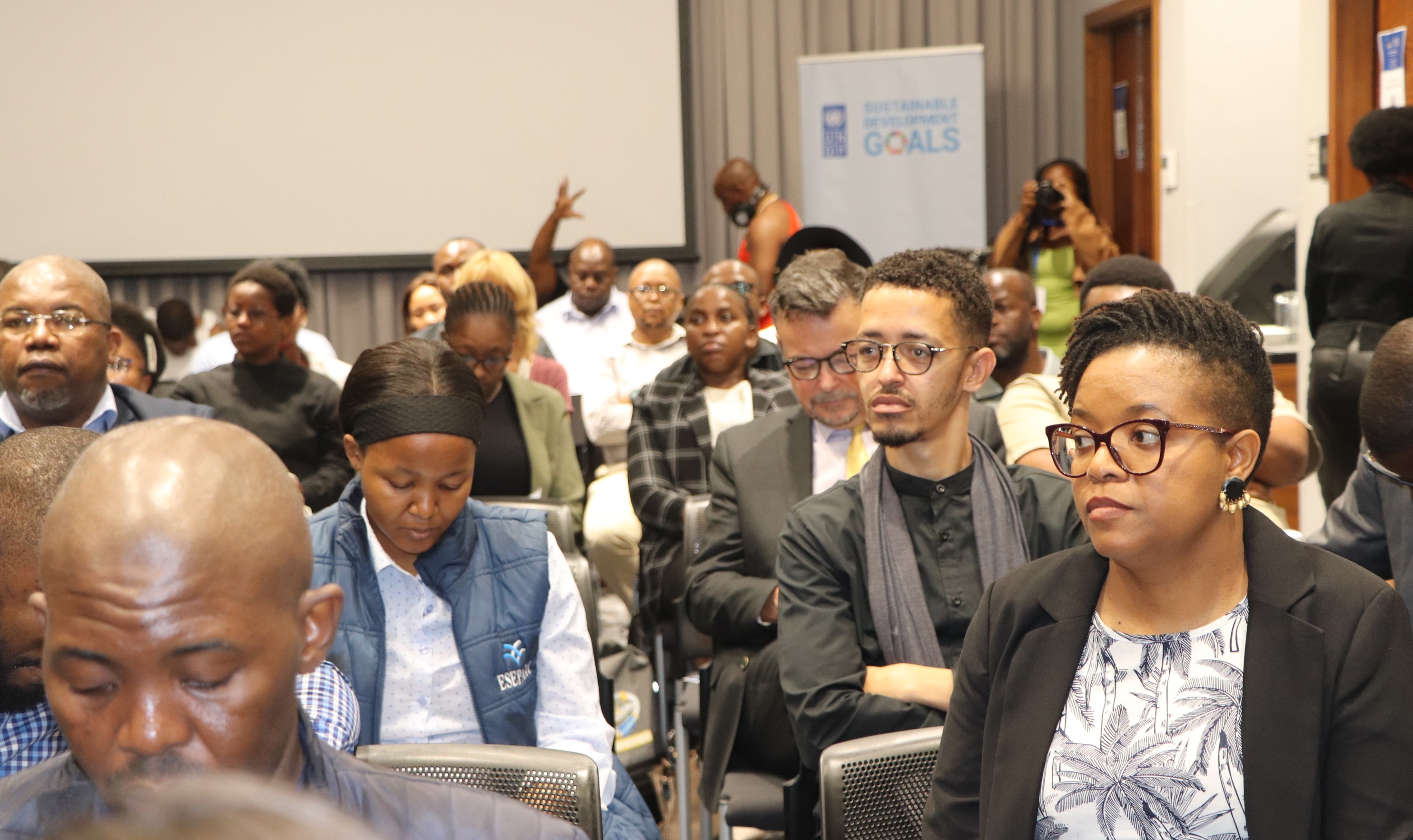Digital Readiness Assessment Significant in Digitalization

UNDP Resident Representative, Mr. Henrik Franklin hands over the Digital Readiness Assessment report to Minister of ICT, Sen. Savanna Maziya.
"This report came at the right time, as Eswatini has embarked on a new drive to transform public services through the implementation of the Eswatini Digitalization Strategy (2024-2028) themed 'Government in Your Hand’.”Minister of ICT, Sen. Savanna Maziya

DRA participants listen as the report is unpacked .
Strengths and Challenges
Government and Leadership: Eswatini's digital transformation is supported by a national digital strategy, yet it faces challenges such as limited institutional coordination. The assessment highlights the need for more substantial political commitment and enhanced inter-institutional collaboration to accelerate digital initiatives. Despite these challenges, significant progress has been made in digitalizing government services, particularly tax and utility services.
It was encouraging to note that this assessment would help the government achieve its goals, as Minister of ICT Sen. Savanna Maziya stated at the report's launch: "This report came at the right time, as Eswatini has embarked on a new drive to transform public services through the implementation of the Eswatini Digitalization Strategy (2024-2028) themed 'Government in Your Hand’.”
Digital Public Infrastructure: The assessment reveals that while foundational elements of digital public infrastructure are present, there is room for growth. Key areas for improvement include developing a comprehensive digital ID system, enhanced data exchange capabilities, and adopting digital payment systems. Establishing a national interoperability framework is crucial to supporting seamless integration and efficient service delivery.
Connectivity and Access: Connectivity remains challenging, with high costs and limited infrastructure affecting internet adoption rates. The assessment underscores the importance of investing in scalable, energy-efficient data centres and expanding network infrastructure to ensure equitable internet access across urban and rural areas. Improving digital literacy and promoting broadband adoption are essential to bridge the digital divide.
People and Digital Literacy: Eswatini boasts a strong basic literacy rate, providing a solid foundation for building digital skills. However, significant gaps remain in digital competencies, particularly among older populations and rural communities. The assessment calls for comprehensive digital literacy programmes and targeted interventions to ensure inclusive access to digital opportunities for all citizens.
Economy and Innovation: The digital economy in Eswatini is in its early stages, with limited integration across sectors. Challenges such as the lack of payment systems, tech providers, and financing options hinder the growth of e-commerce and innovation. The assessment recommends enhancing research and development funding, promoting e-commerce platforms, and fostering a supportive business environment through clear regulations and incentives.
Regulation and Cybersecurity: Eswatini has made notable progress in establishing data protection and cybersecurity frameworks. However, the enforcement of these regulations remains inconsistent. The assessment highlights the need for continuous evaluation and stakeholder engagement to maintain effective regulatory frameworks and protect consumer rights and data privacy.
Paving the Way
The Digital Readiness Assessment provides prioritised recommendations across various pillars for the leading Ministry of ICT.

Prioritised recommendations from the digital readiness assessment report.
A Vision for a Digitally Inclusive Eswatini
The DRA is pivotal to realising Eswatini's vision of a digitally inclusive future. By addressing the identified challenges and leveraging the strategic recommendations, Eswatini can build a robust digital ecosystem that supports economic growth, social inclusion, and sustainable development. As we move forward, the commitment of all stakeholders – government, private sector, and civil society - will be essential in driving this transformation and ensuring that no one is left behind in the digital age.
Explore the full DRA report to gain deeper insights into Eswatini's digital landscape and join us in shaping a brighter digital future for all emaSwati.

 Locations
Locations